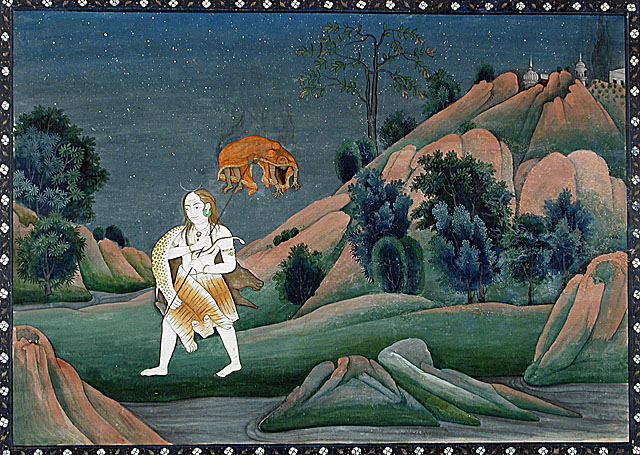Sati


Satī (ˈsʌti:) (Sanskrit: Satī), is also known as Dakshayani (Dākṣāyaṇī). In the Tamil tradition, Sati is called Tāṭcāyiṇi, and in Telugu tradition she is known as Perantalu. Sati is the goddess of marital felicity and longevity in Hinduism. An aspect of Adi Parashakti, Dakshayani is the first consort of Shiva, the second being Parvati who is the reincarnation of Sati.
In Hindu legend, both Sati and Parvati, successively play the role of bringing Shiva away from ascetic isolation into creative participation with the world. The act of Sati, in which a Hindu widow self-immolates on her husband's pyre as a final and consummate act of loyalty and devotion, is patterned after the deed committed by this goddess to uphold the honour of her husband.
Queen Prasuti desired a daughter, Lord Brahma advised her and her husband Daksha to meditate upon the Goddess Adi-Parashakti. They gave up their royal robes, put on the guises of saints, and sat in a forest and meditated upon Goddess Adi-Parashakti. After a long time, Goddess Adi-Parashakti appeared awakening Daksha and Prasuti from their penance. Adi Parashakti invited them to request the desired boon from her, Daksha asked the Goddess to take birth again as their daughter. The Goddess gave them their consent but also gave them a warning that if ever she should be insulted, she would take up her Celestial form and disown them. Daksha and Prasuti agreed to take care of her.